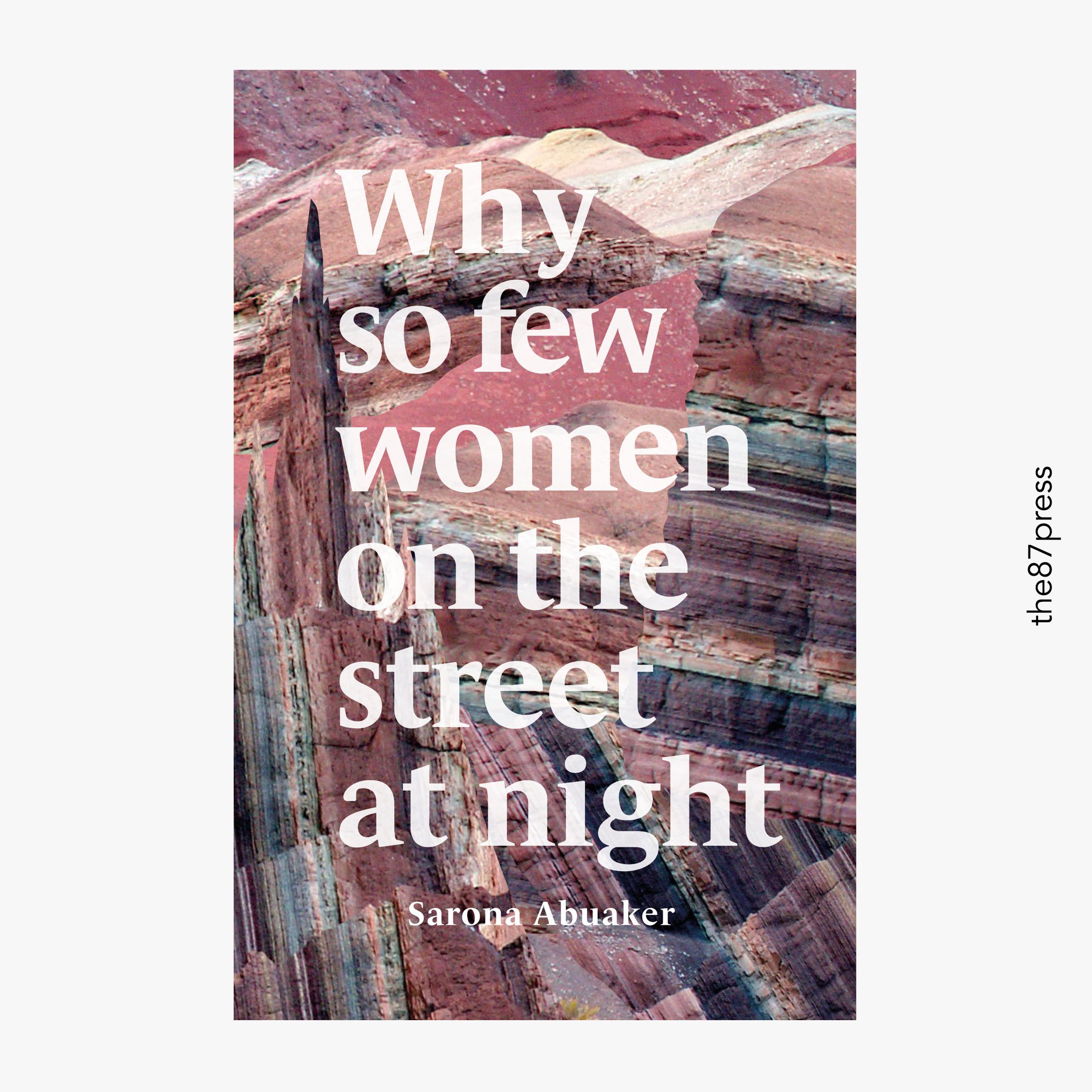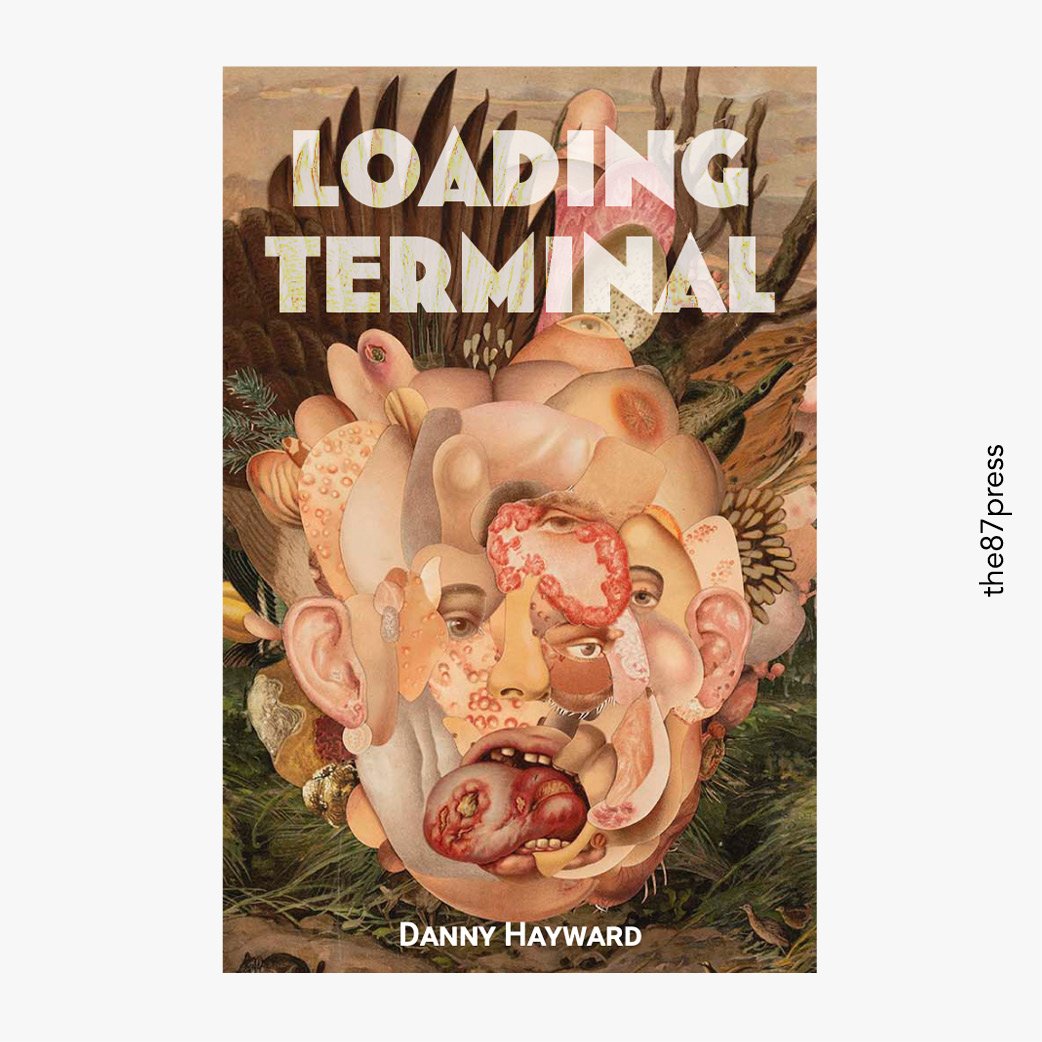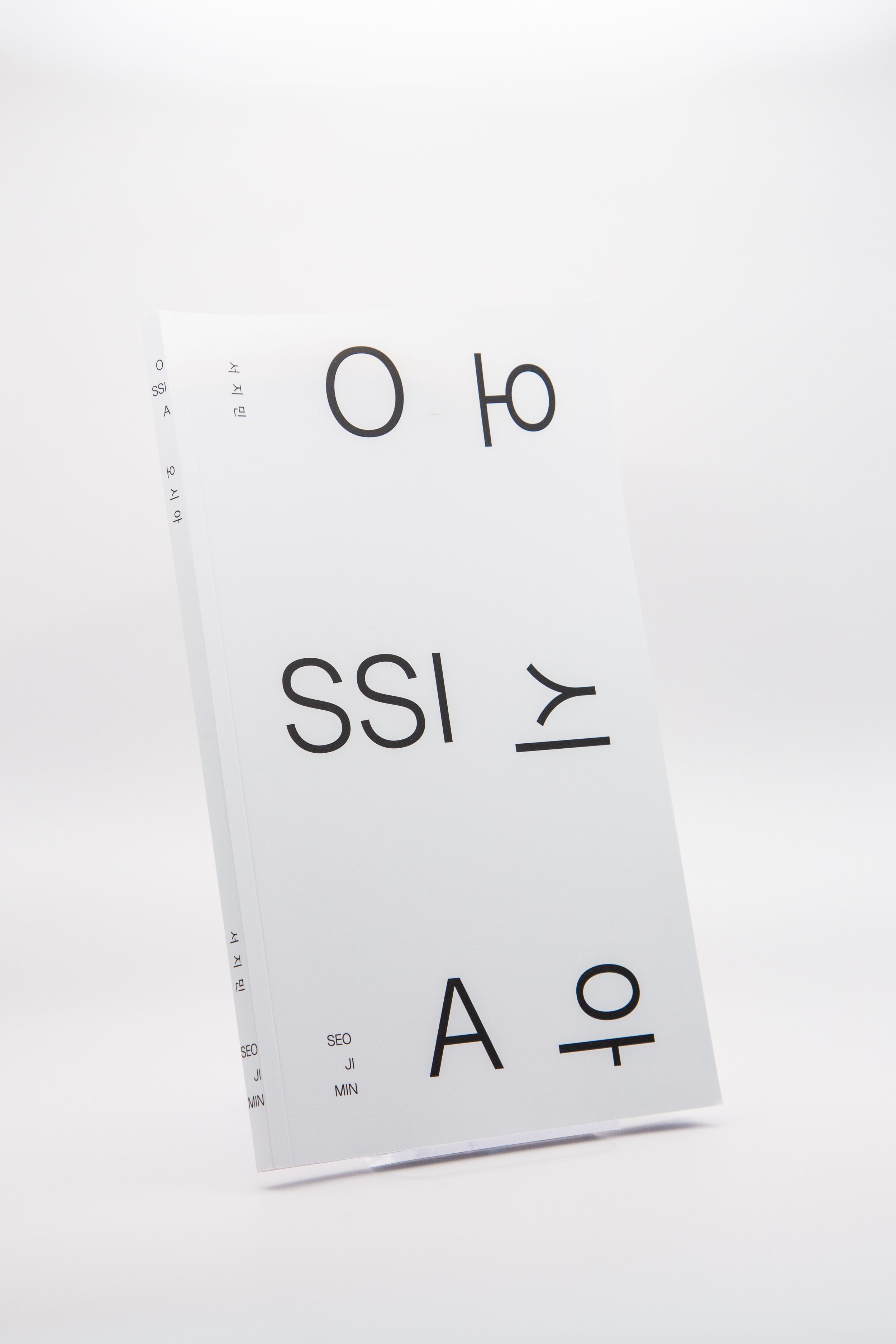 Image 1 of
Image 1 of

Why so few women on the street at night
by Sarona Abuaker
A searing and multi-form debut from Palestinian human rights activist and theorist Sarona Abuaker. Complete with images from performance pieces, essays, fragments of theory and notebooks, these are poems that engage the reader in thinking about liberation.
by Sarona Abuaker
A searing and multi-form debut from Palestinian human rights activist and theorist Sarona Abuaker. Complete with images from performance pieces, essays, fragments of theory and notebooks, these are poems that engage the reader in thinking about liberation.
by Sarona Abuaker
A searing and multi-form debut from Palestinian human rights activist and theorist Sarona Abuaker. Complete with images from performance pieces, essays, fragments of theory and notebooks, these are poems that engage the reader in thinking about liberation.
ISBN: 9781739954703
116 pages
Date published: 03/11/2021
Paperback
Sarona Abuaker is a poet, artist, and educational outreach worker. Her poems have been published in Berfrois, MAP Magazine, and the87press’ Digital Poetics series. Her mixed-media essay Suture Fragmentations – A Note on Return was published in December 2020 with KOHL: A Journal for Body and Gender Research. She is based in London. Why so few women on the street at night is her debut collection (the87press, 2021).
In Sarona Abuaker’s extraordinary debut collection, “images, graphs, charts, statistics, maps, bank statements from the home of origin &/or showing the said home of origins” perform a version of skin that shakes until it is no longer something another person could touch. Is this erasure, a metamorphic performance, or the moment, in fact, in which the body is disappeared? In one searing instance, Abuaker attends to somatic memory as something made available only by severance, a physiological and political act: “release memory/ muscle/heart/if you cut open the chest/you will see the blockages/cross lines/coronary/green azygous/armistice/ partition/seizing seizing seizing.” Here, syntax performs the cut and becomes the texture, the wound, the very thing that must be sutured now. As the poet writes: “resistance sometimes looks like constraint.” Perhaps the same could be said of recovery (aftermath) as well. Why so few women on the street at night is another brilliant offering from the87press.
–Bhanu Kapil






